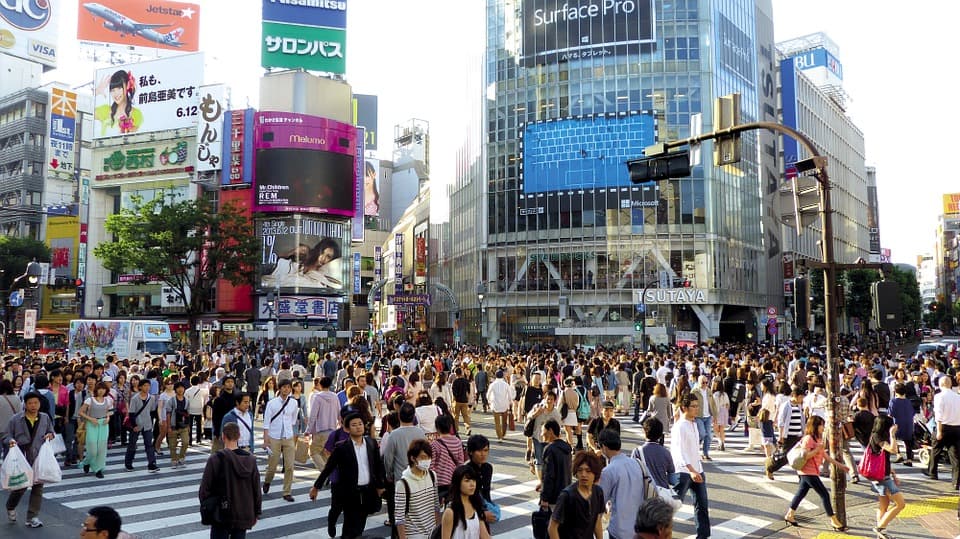Japan is one of the world’s top tourist destinations. Every year, it attracts several millions of people from around the world who want to visit centuries’ old castles, temples, and shrines; take part in some of the most vibrant and colorful summer, autumn, winter, and spring festivals on the planet; see stunning and picturesque natural landscapes and waterscapes; experience the renowned Japanese high-tech toilets, solemn temple stays, therapeutic onsen or hot springs, and bustling night life in the big cities; and feast on ramen, sushi, and other mouthwatering cuisine.

However, because they are in a foreign country whose history and culture they are not so familiar with and whose language they do not speak, a lot of tourists in Japan commit many cultural etiquette fails that may offend Japanese people. They do not think that translating phrases and words to Japanese via translation apps or using sentences they find in Japanese dictionaries and phrasebooks can sometimes get what they really want to say lost in translation.
If you do not want be say something rude or offensive to a Japanese person on your next trip to Japan, below are some tips that can help you get started:
Do not address other people using their first names.
In Japan, you do not address other people by using their first names like how things usually are in the Western world. That is not considered polite, especially if you are talking to a superior, someone older than you, or someone you meet for the first time. You must use Japanese honorifics to show respect.
There are several Japanese honorifics that you might want to learn before your trip. Here are some examples:
- “-sama” – This is the most formal Japanese honorific. It is added at the end of a name to show respect. It is commonly used for royalty (“ohime-sama”) or God (“kami-sama”).
- “-san” – This is another formal Japanese honorific that is equivalent to how “Ms.” and “Mr.” are used in the English language. You can use it to address teachers, coworkers, bosses, acquaintances, and people you meet for the first time. So, for example, if you want to address someone named Mr. Kimura, you can call him “Kimura-san.”
- “-chan” – This is an informal Japanese honorific and commonly used female term of endearment for kids, family, and close friends. For example, some Japanese families call their grandmother “oba-chan.”
- “-kun” – This is an informal Japanese honorific that is the male equivalent of “-chan.” It is often used for young boys, and close male friends and peers. For example, you can call your high school buddy and co-worker Kenta “Kenta-kun.”
Among these honorifics, “-san” is your safest bet when addressing a Japanese person. So, for example, if your Japanese tour guide introduces herself as Hanako, you can call them “Hanako-san.”
Do not use “-san” after your name.
Now that you know a little bit about Japanese honorifics, you should know that you only use them to address other people. You cannot use them after your own name.
So, if you want to introduce yourself to a person you meet in Japan, do not say “Hi, my name is Mark-san” or “I’m John Smith-san.” That is just wrong. Saying that makes you sound like a child and look silly. The correct way is to just say “Hi, my name is Mark” or “I’m John Smith.”
Do not just say “hai” when being offered food.
If you are visiting a Japanese person’s home and you are offered food or beverages, you should not immediately say “hai” (which means “yes” in English). In Japan, the polite way to deal with this situation is to say “kekko desu” (which means “no thank you” in English) or “ie ii desu” (which means “no, it’s all good” in English).
Even if you are starving or dying of thirst, you have to decline the first offer to be respectful. Then, the second time you are offered, you can accept politely by saying something like “ja, itadakimasu, arigatou gozaimasu” (which roughly translates to “okay, I will have some then, thank you” in English).
Of course, when eating at restaurants where you order food and drinks to be served at your table, you can just say “arigatou gozaimasu” (which means “thank you” in English) to your waiter to let them know that you appreciate their service.
Do not say “sayonara” to say goodbye your family or friends.
If you type in “goodbye” into Google Translate, the Japanese translation given is “sayonara.” However, using “sayonara” to say goodbye to someone who you will see tomorrow or in the next few days or weeks is wrong.
The Japanese people only use “sayonara” when saying goodbye to people they will not see for a long period of time. For example, you can use “sayonara” to bid farewell to a new friend you meet at the hostel, as you are not sure when you will see each other again.
If you want the casual way of saying goodbye, you can use “ja nee” or “ja mata” (which both roughly translate to “see you” or “see you again”). These terms are typically used by the Japanese people at work or in school, when saying goodbye to coworkers or classmates they will see again the next day.
Do not thank people for complimenting you.
If a Japanese person says something nice about you, like telling you that you look nice in your dress or you did a great job, you should not say “arigatou gozaimasu” (which means “thank you” in English). Unlike the Western world, where thanking others after receiving compliments is the polite thing to do, Japan prefers a more modest response.
So, to show appreciation for other people’s positive feedback, you should say “ie” or “zenzen” (which roughly means “no not at all” in English).

